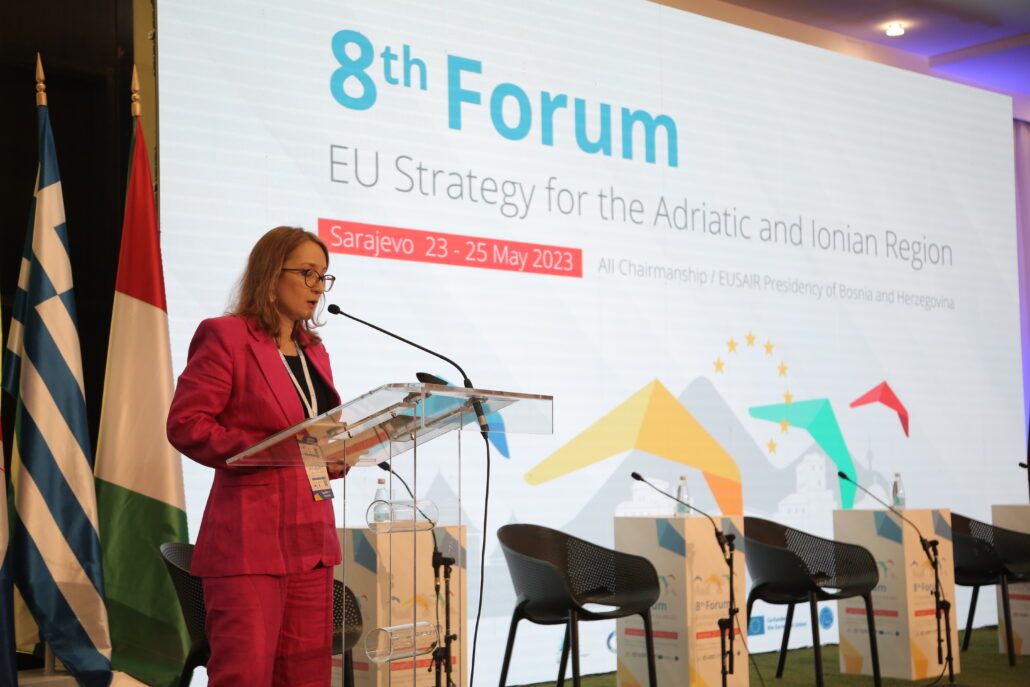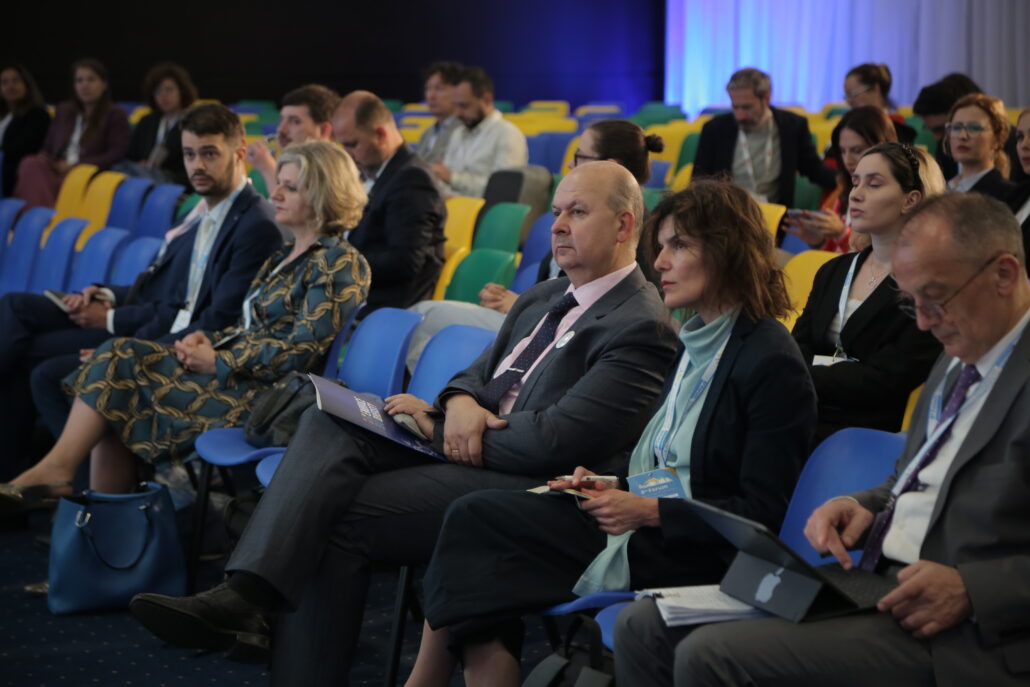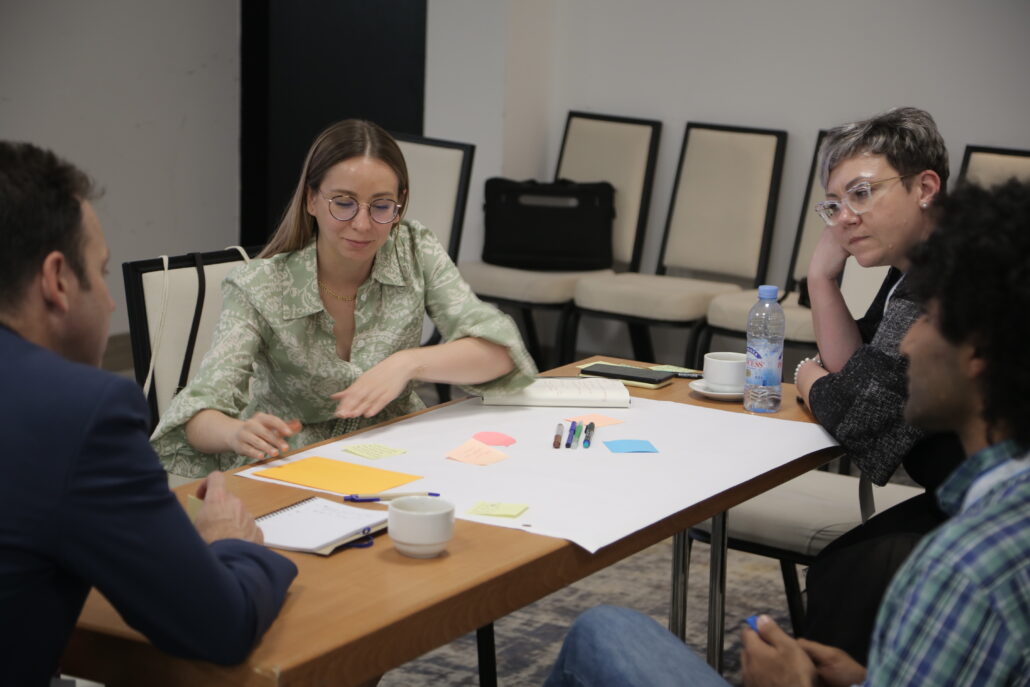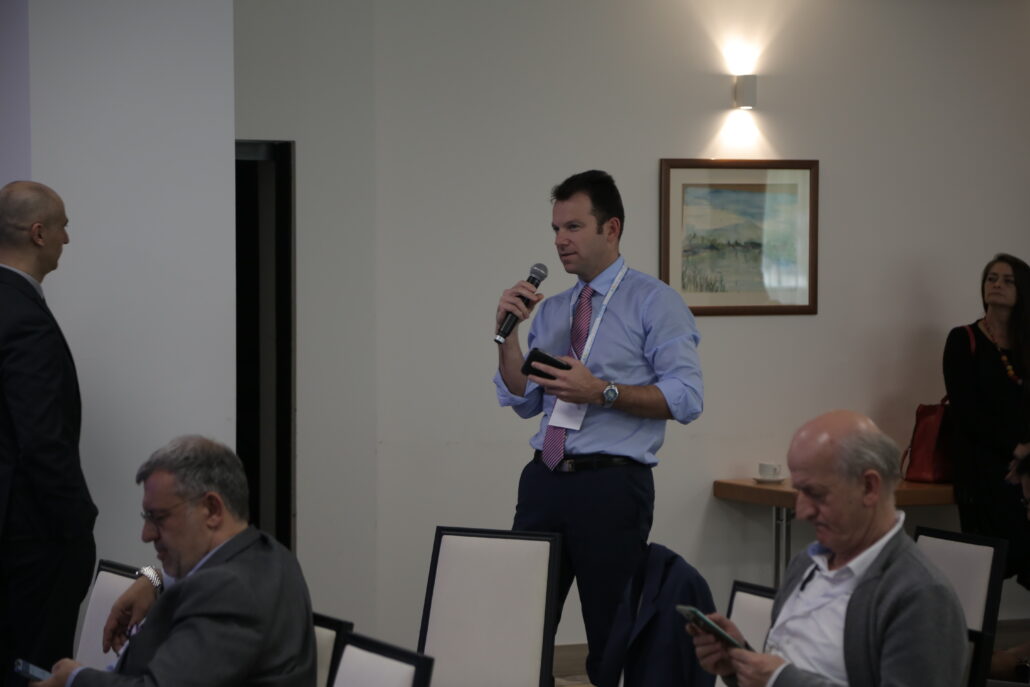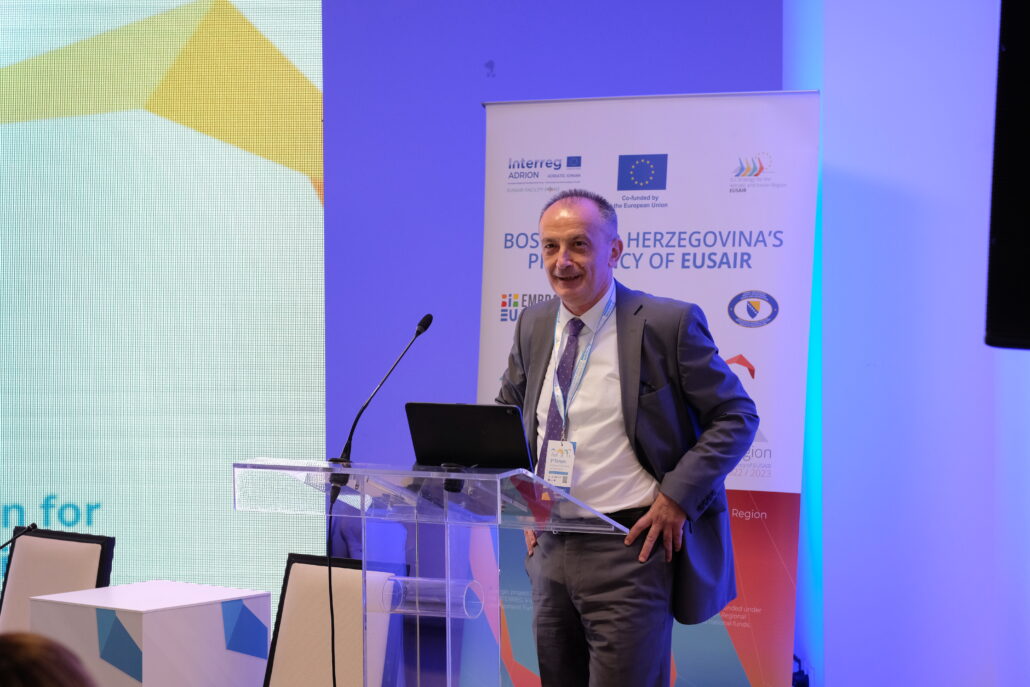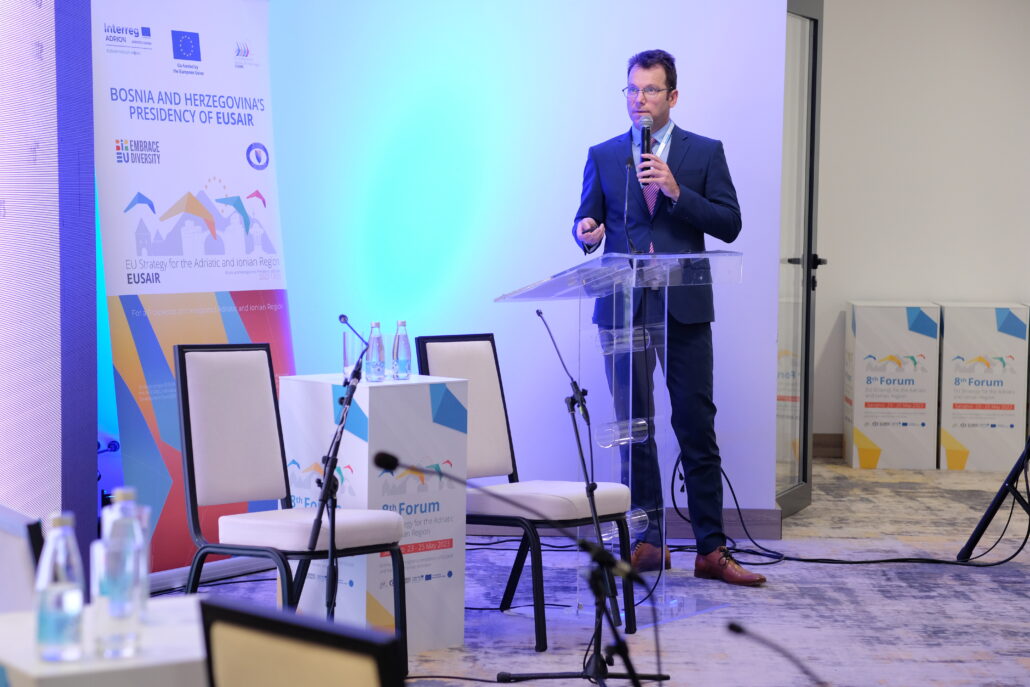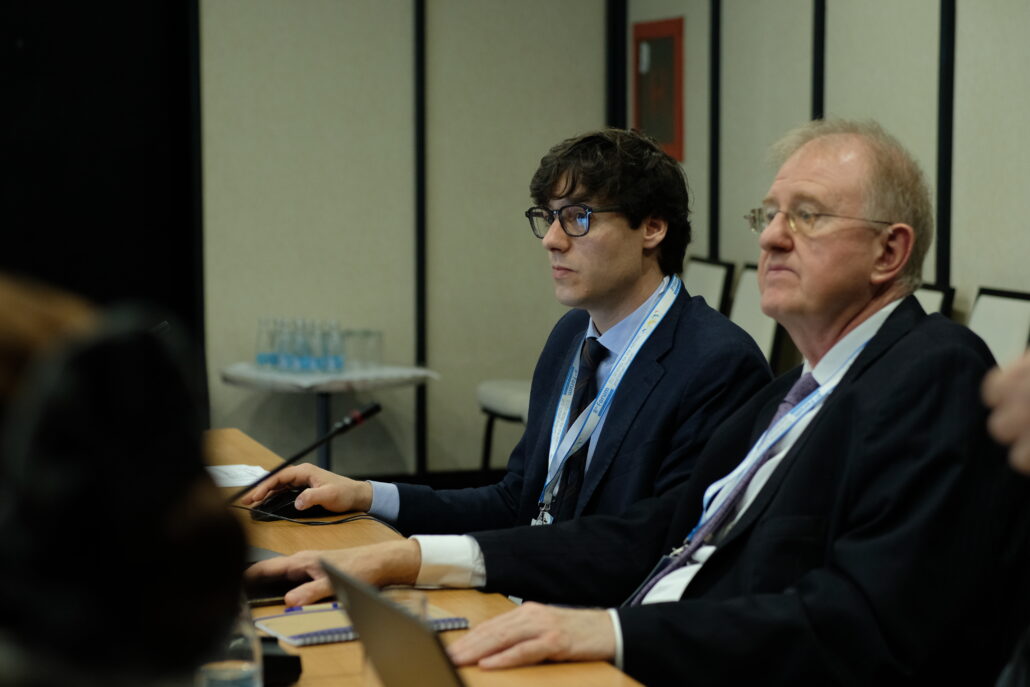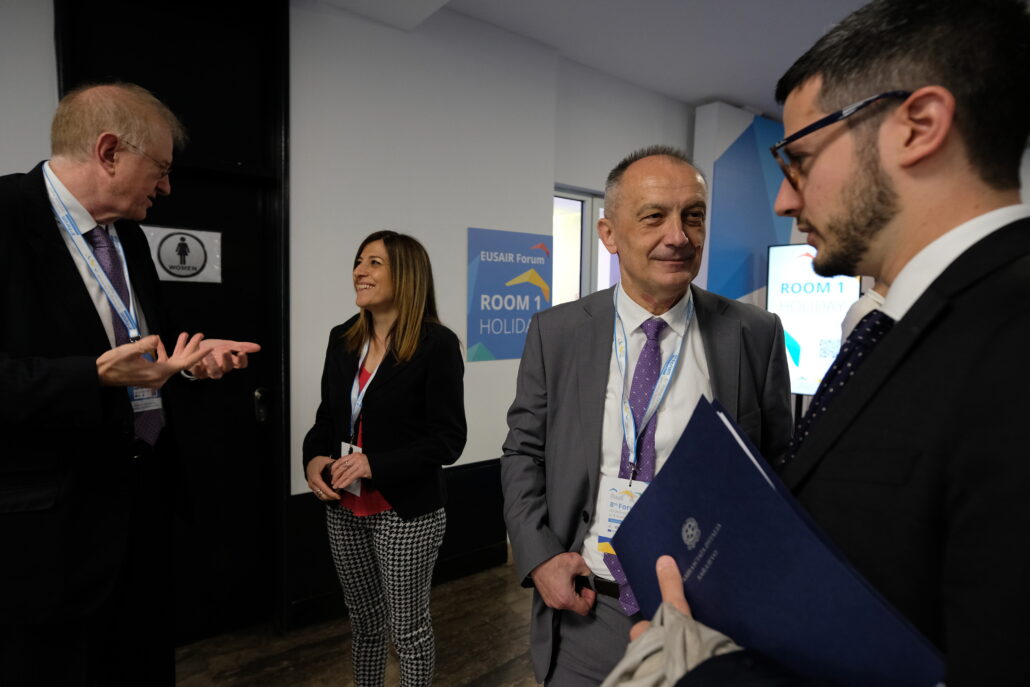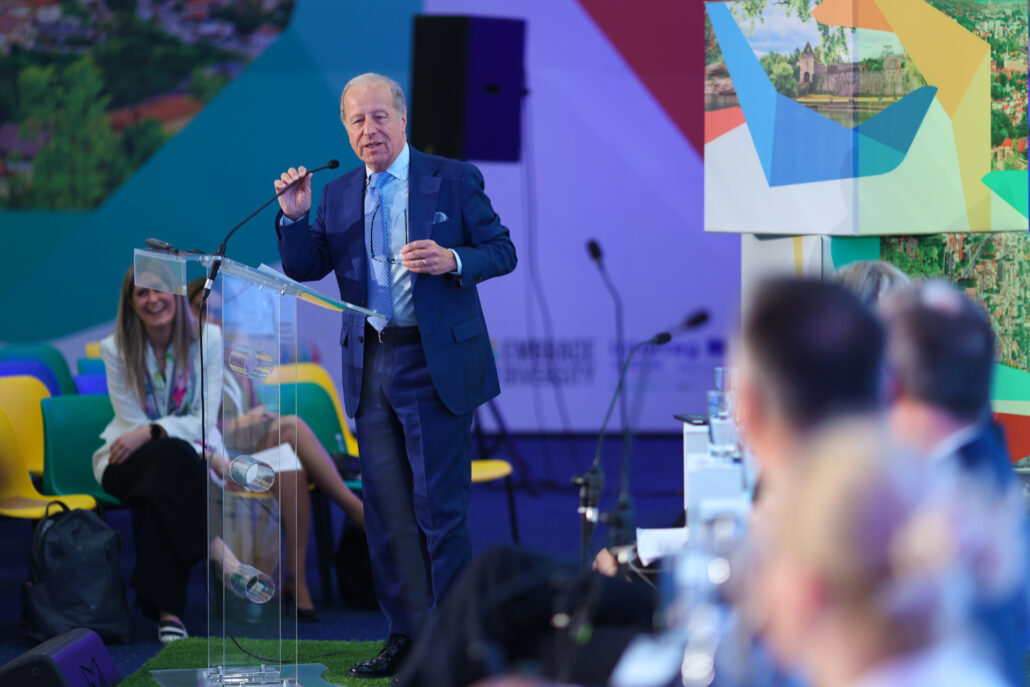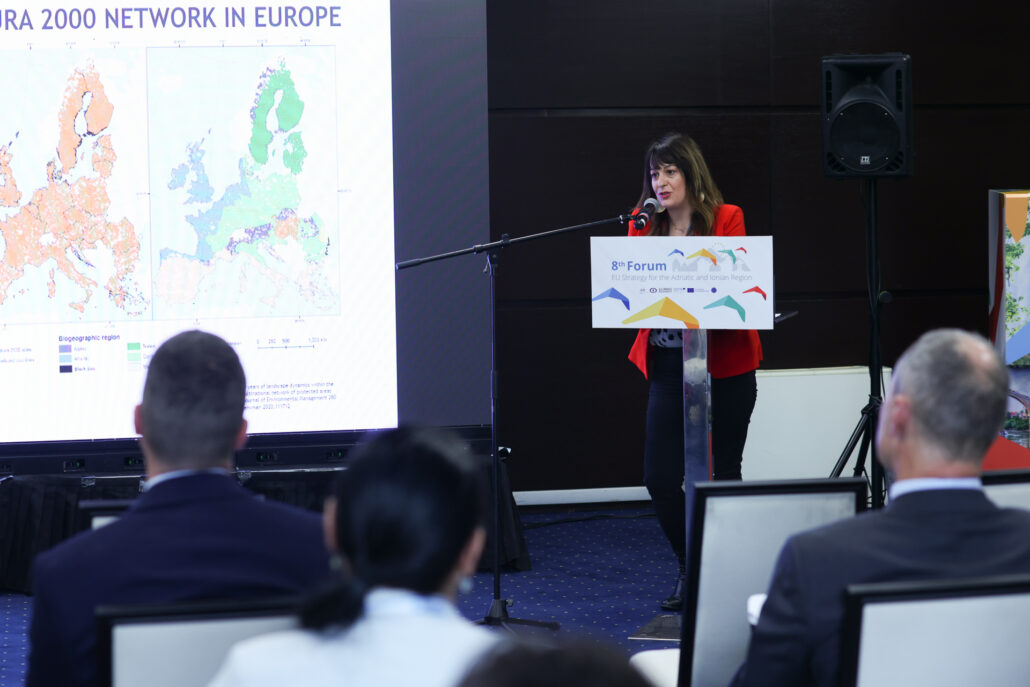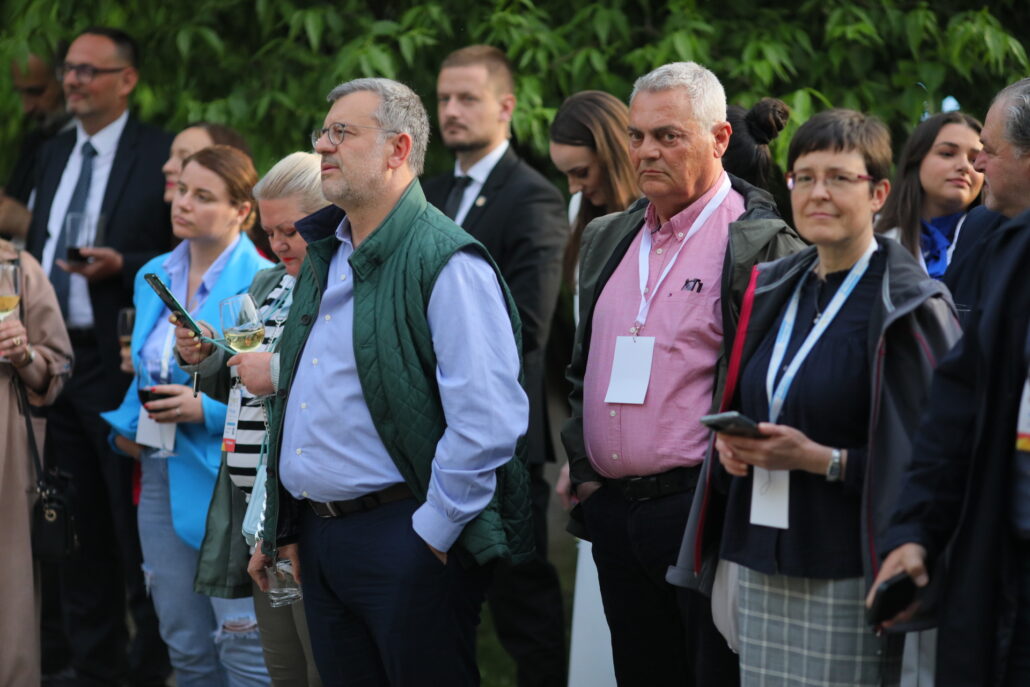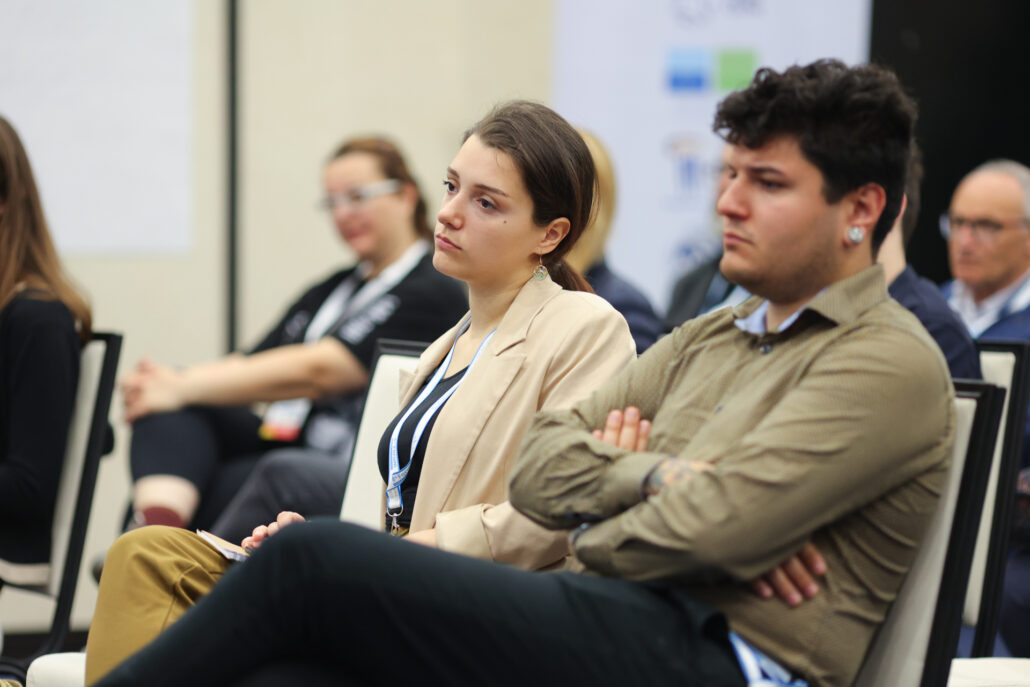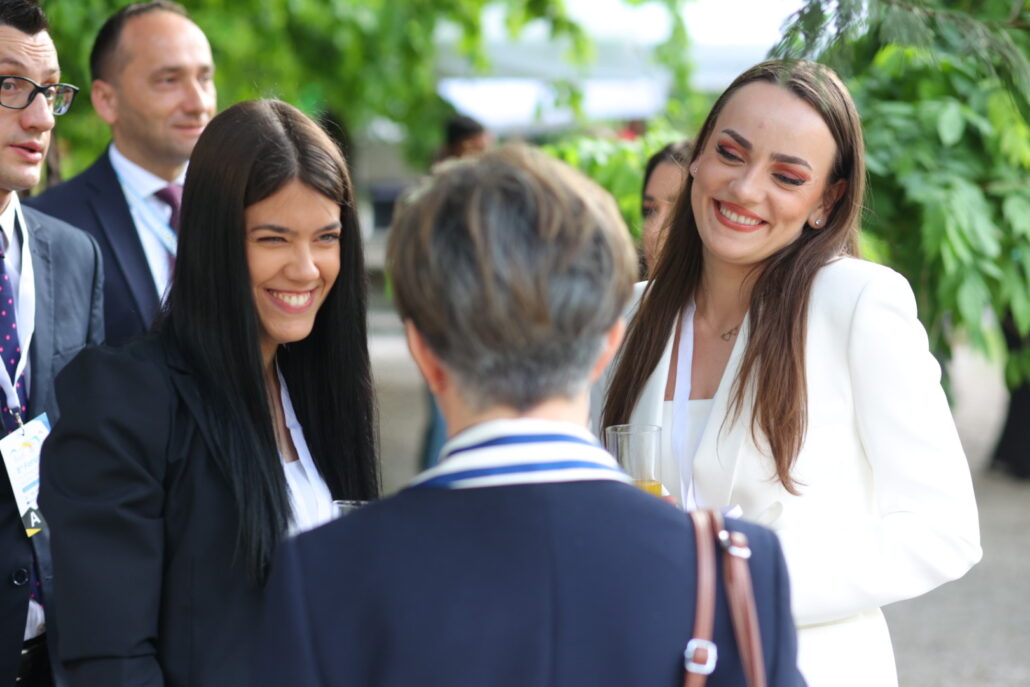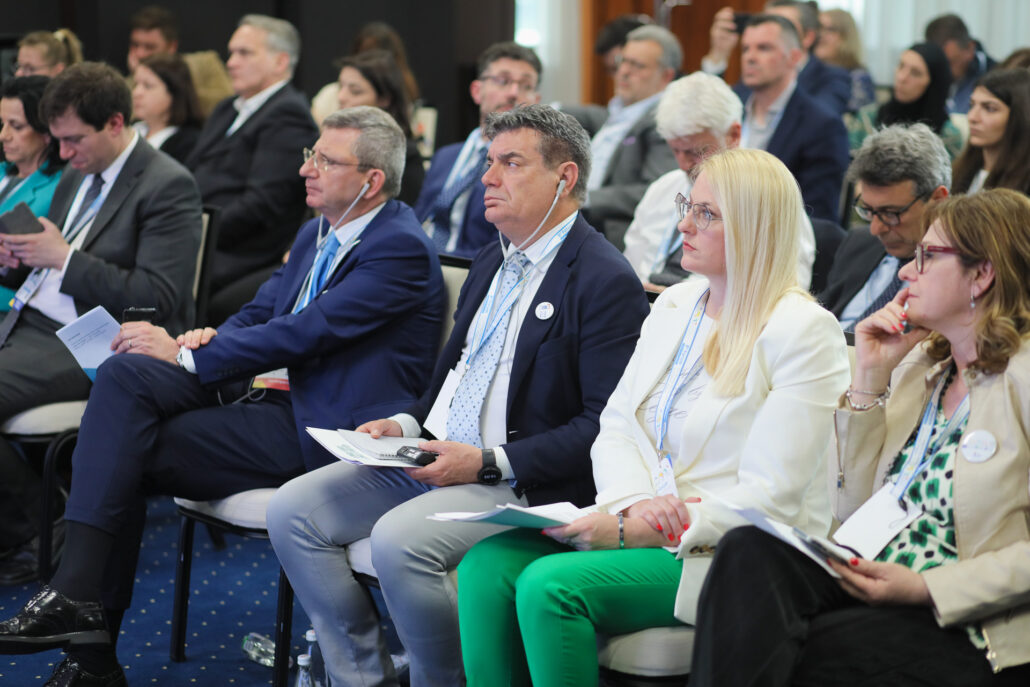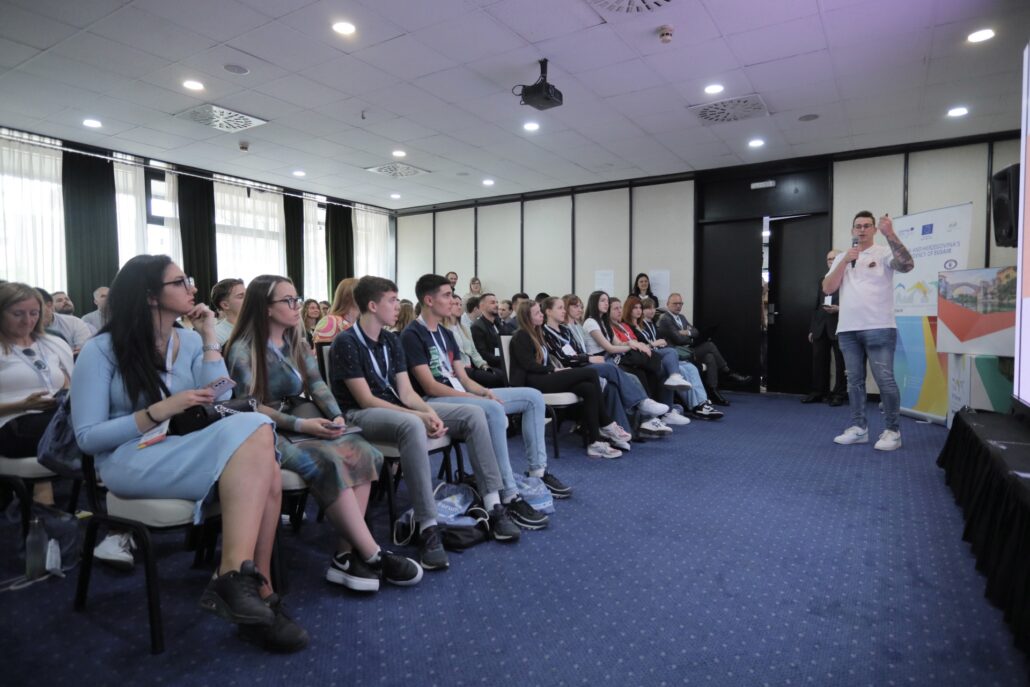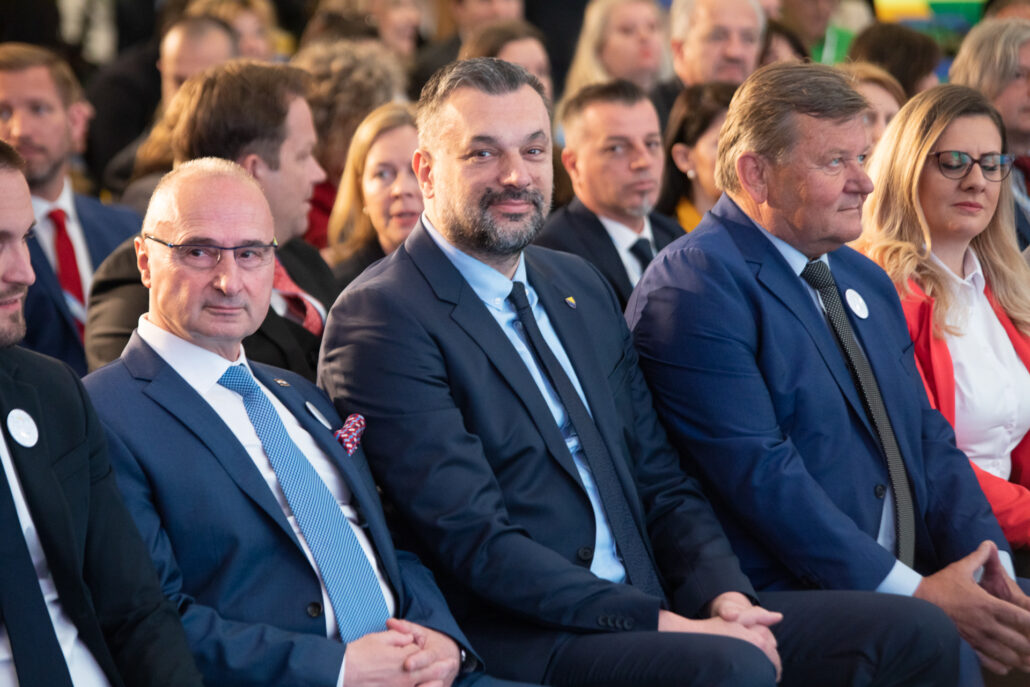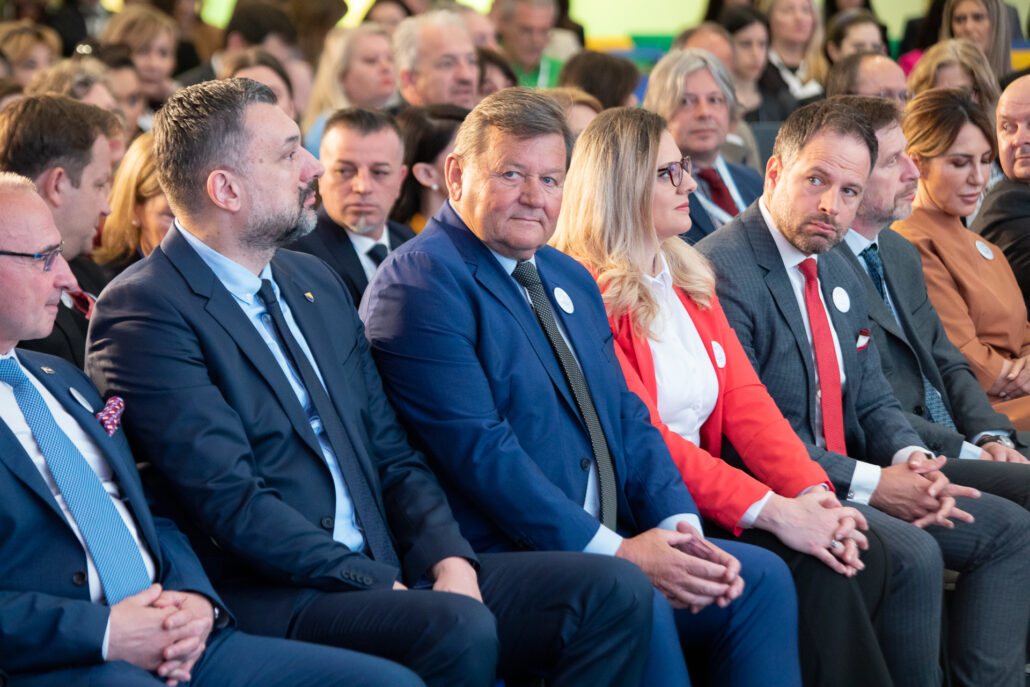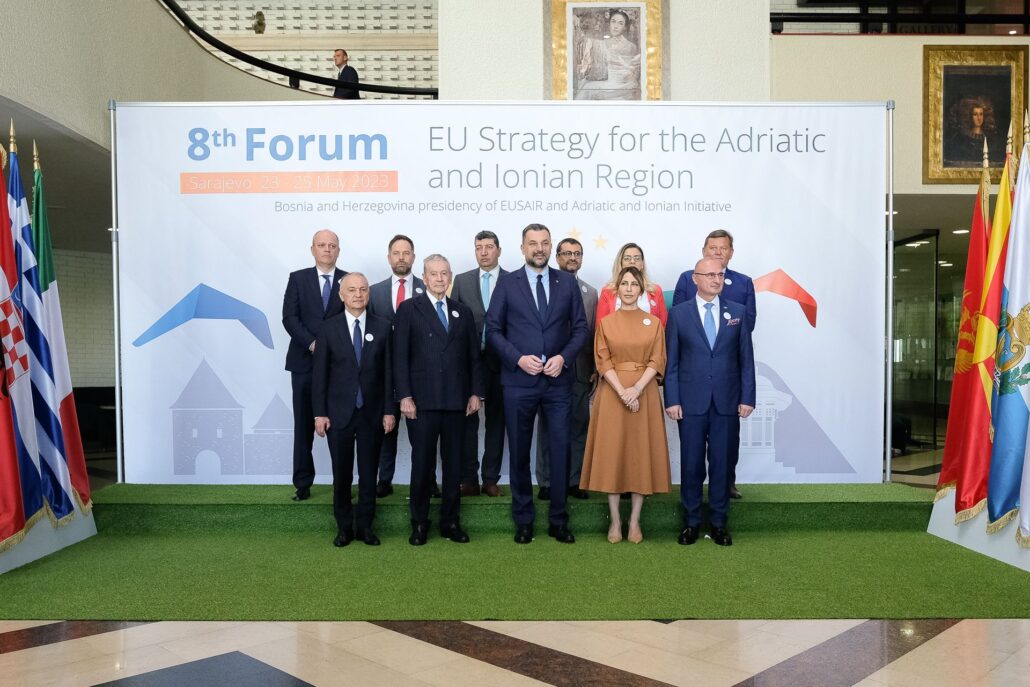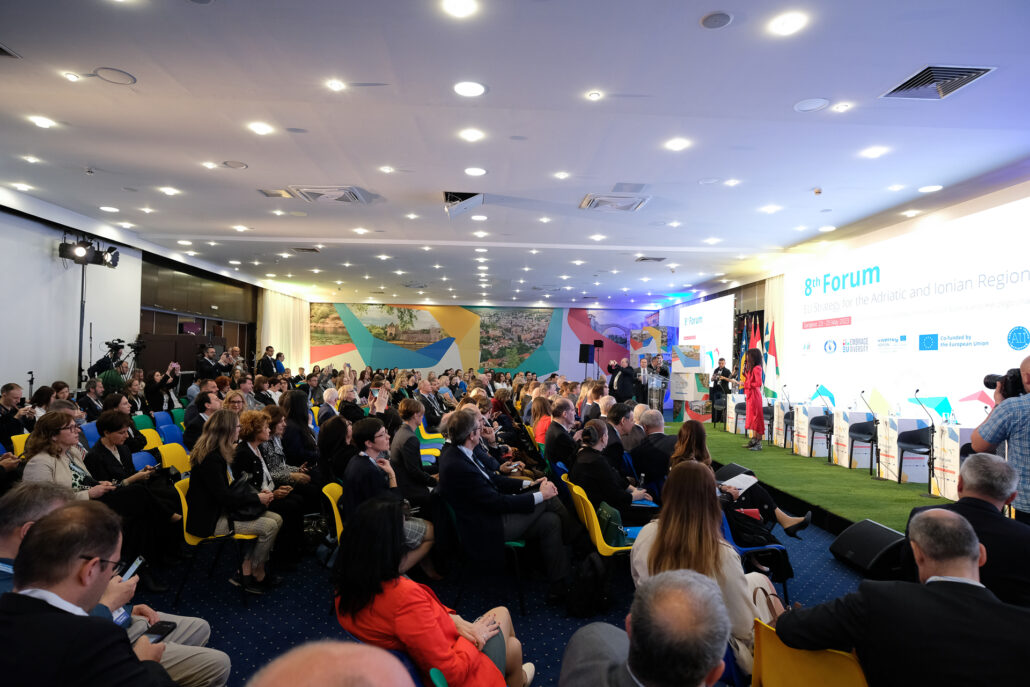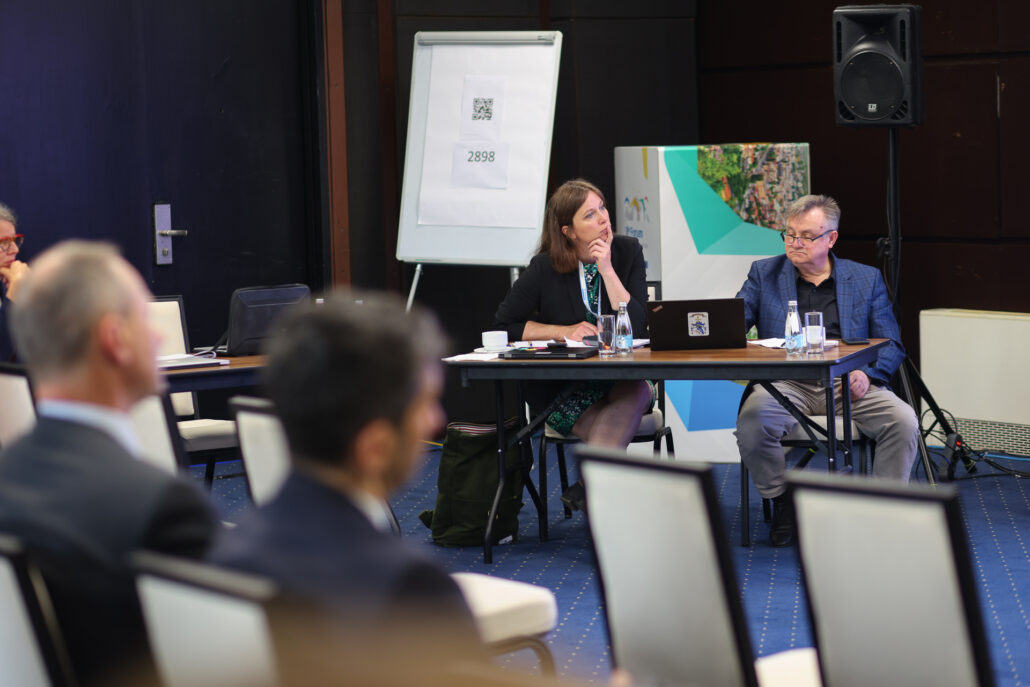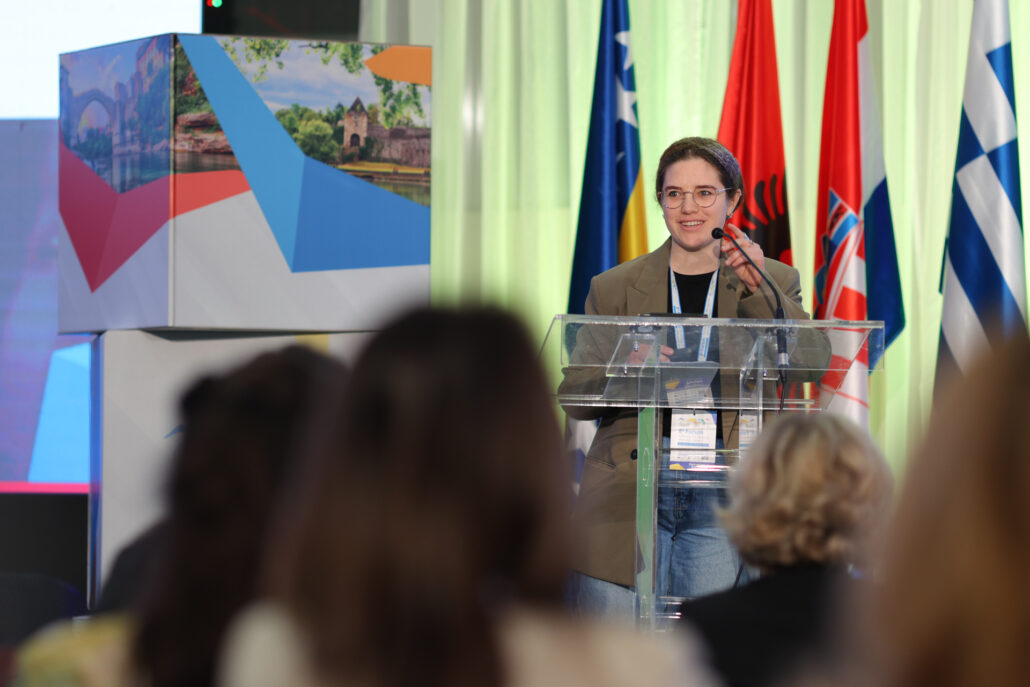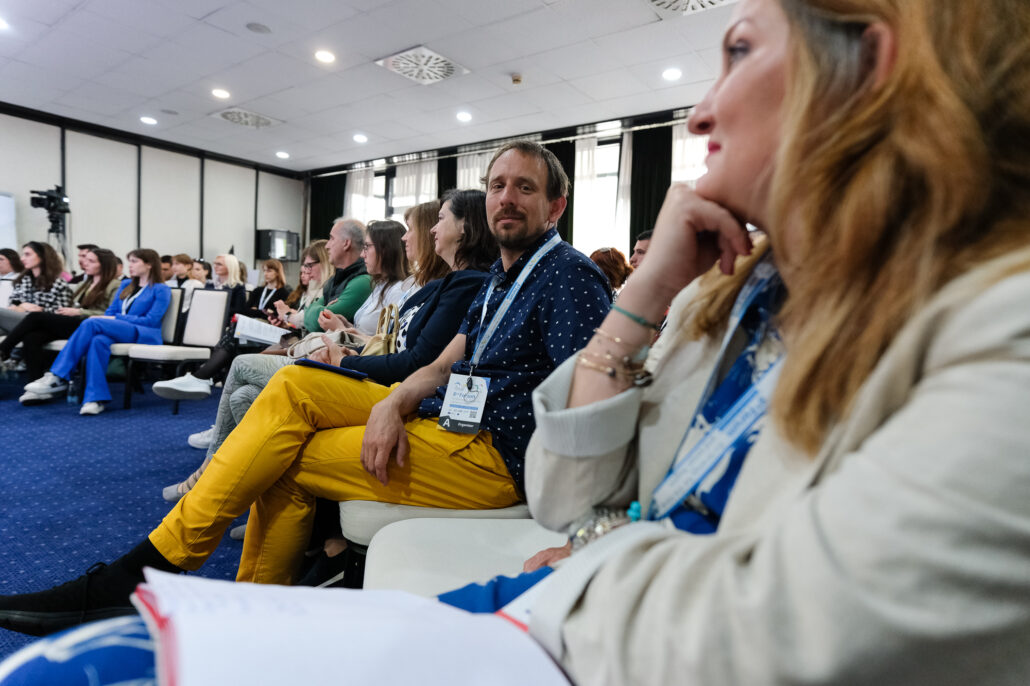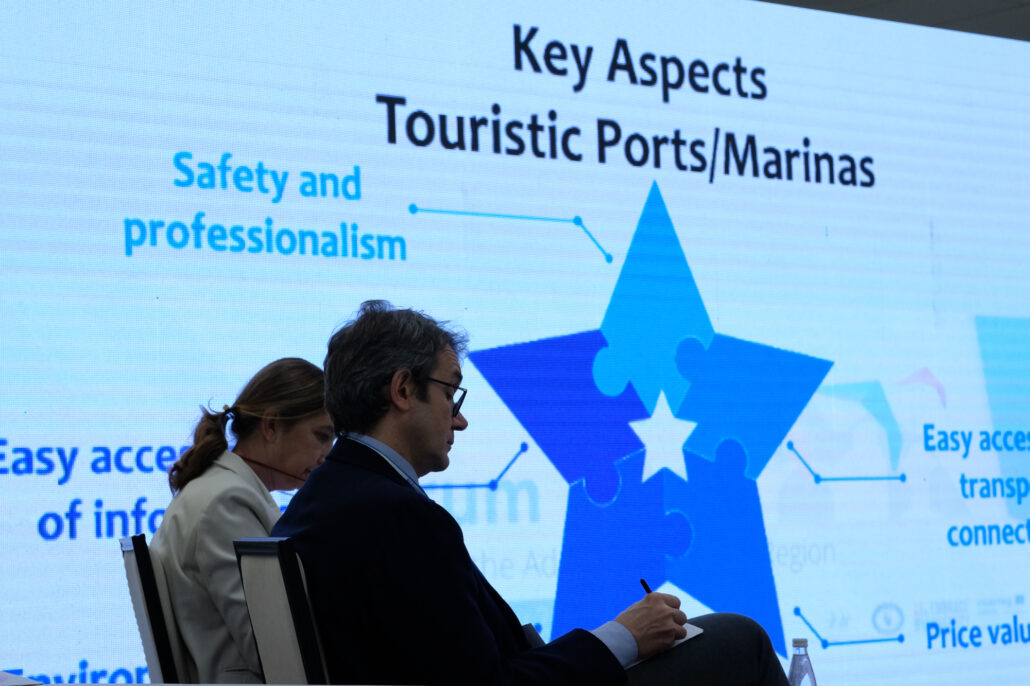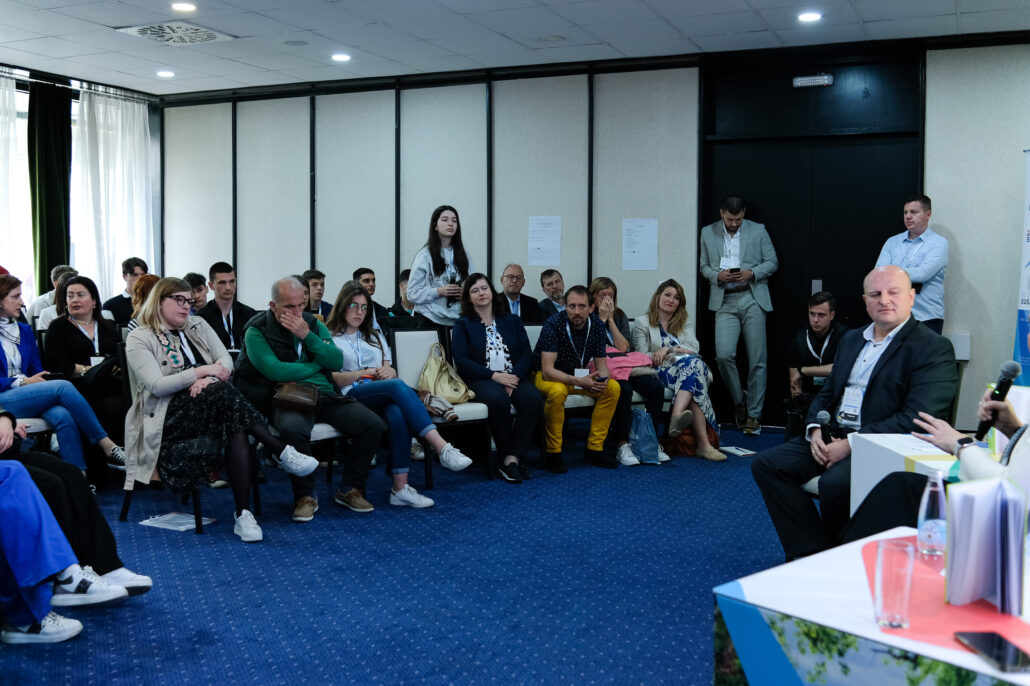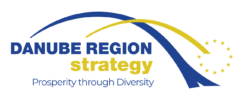A successful conclusion of the 8th EUSAIR Forum
The 8th EU Strategy for the Adriatic-Ionian Region (EUSAIR) Forum took place in Sarajevo from the 23rd to the 25th of May. This event has brought Bosnia and Hercegovina’s Presidency to a successful end. High-level officials from all EUSAIR countries attended the forum.
This year’s focus was the theme of enlargement, a topic that is significant for many of the stakeholders involved in the strategy. Elmedin Konaković, Foreign Minister of Bosna and Hercegovina, highlighted the effective exchange of views between the countries of the macro-region, which enabled his country to present the effectiveness of the mechanisms and of BA’s commitment to accelerate the process of EU integration. This reminds us that, cooperation remains key, with candidate countries from the Western Balkans, EU member states, and the European Commission working hand in hand to combat enlargement fatigue. The acceleration of the EU enlargement process holds paramount importance, and the Forum ignited crucial dialogues, emphasizing the need to keep enlargement at the heart of the EUSAIR Strategy.
Another significant subject highlighted during the Forum centred on the critical matter of “brain drain.” To find potential solutions, a series of events orchestrated by youth organizations, comprising talks on sustainable agriculture, green rural development, innovation, and circular economy, were dedicated to addressing this challenge within the EUSAIR region. Brain drain has emerged as one of the most troubling issues in the Western Balkans, resulting in a regrettable dearth of skilled labour. Consequently, it becomes imperative to tackle the challenges of enlargement and brain drain to ensure sustainable progress.
The forum concluded with a symbolic passing of the Presidency of EUSAIR from Bosnia and Herzegovina to Croatia and the adoption of the Sarajevo Declaration that highlighted the commitments and priorities of the European Union Strategy for the Adriatic and Ionian Region (EUSAIR) as agreed upon during the EUSAIR Ministerial Meeting held in Sarajevo.
What about our Pillars?
The Pillar I session focused on fostering sustainable blue economy sectors in the Adriatic and Ionian Region, addressing climate change challenges while supporting local communities and conserving marine ecosystems. Topics included green and digital transitions, circular economy, and water management. Key emerging sectors identified were ocean and marine renewable energy, and blue biotechnology (algae). The session emphasised the need for cooperation at the sea basin level, various funding opportunities and programs were discussed, such as the EMFAF fund, Horizon, SBE partnership, Interreg, and regional and national sectoral programs, which can contribute to financing research, development, and innovative projects. The session’s outcomes will contribute to the revised EUSAIR Action Plan, incorporating these sectors and strategies for regional development and sustainability.
The Pillar II Transport sub-group session Planning for Sustainable Urban Mobility in the Adriatic-Ionian Region” highlighted the growing importance of addressing sustainable urban mobility within the EUSAIR strategy. The keynote speech delivered by Mr Pierluigi Coppola emphasized the need to manage urban mobility effectively to avoid congestion, pollution, and safety issues resulting from urbanization and auto-oriented lifestyles. During the session, speakers discussed several emerging trends as potential solutions, including new lifestyle and digitalization, modal hubs, mobile services utilizing big data, electrification of vehicles, and urban air mobility. The emphasis was on transitioning streets to be more human-oriented rather than vehicle-oriented. The session highlighted various best practices from different EUSAIR participating countries, including sustainable urban mobility planning in Belgrade and Novi Sad, improving accessibility through cable-car projects in Trieste, sustainable tourism and mobility in Lefkas, and the electrification of local public transit in Padua. The session highlighted the urgency for measures to address urbanization’s externalities. The EUSAIR Action Plan’s revision includes urban mobility as a key focus area, offering significant potential synergies with sustainable tourism, greener cities, and ports. The revised TEN-T regulation emphasizes the role of urban nodes in shaping greener and more comprehensive European transport networks.
The Pillar II Energy Networks Sub-Group session focused on designing an Energy Green Deal for the Adriatic and Ionian Region to tackle climate change and energy security challenges. Countries in the region face significant hurdles in transitioning to decarbonized energy systems to combat global climate change while ensuring energy security amid geopolitical shifts. The session emphasized the importance of power and natural gas networks in achieving these goals. The proposed Energy Green Deal involves enhanced energy cooperation within the region, promoting the integration and “greening” of energy systems while addressing shared challenges. Many countries are currently designing their National Plans for Energy and Climate beyond 2030, and coordinating these plans could facilitate EU access for Western Balkan countries. Keynote speakers presented proposals from strategic projects led by the EUSAIR Pillar II Sub-Group on Energy Networks. The Master Plan of energy networks in the Adriatic-Ionian region highlighted three energy scenarios, including a carbon-neutral option by 2050, advocating for faster integration and interconnection of energy networks, improved energy efficiency, increased electrification, and preparation for the hydrogen economy to facilitate EU enlargement. The Road Map towards an EUSAIR Power Exchange and Natural Gas Trading Hub addressed obstacles hindering coordinated electricity and natural gas markets in the region. Recommendations included clarifying the benefits of coordination and implementing regulatory measures to open and connect markets while leveraging complementary energy resources.
The Pillar III Session highlighted the joint efforts in the Adriatic-Ionian region to promote sustainable development, protect biodiversity, adapt to climate change, and improve waste management. These efforts reflect the shared commitment of researchers, policymakers and organisations working towards a more sustainable and resilient future for the region. They highlighted that by fostering collaboration, sharing knowledge and implementing integrated approaches, the region can make significant progress towards good environmental status, resilient ecosystems and effective waste management. Recognizing integrated coastal zone management, marine spatial planning and holistic ecosystem approaches as effective strategies for sustainable development, a harmonious balance between economic development and environmental protection can be ensured. As these approaches, take into account the interconnectedness of terrestrial and marine ecosystems and incorporate climate change planning into their strategies. By implementing innovative waste management solutions, promoting recycling and circular economy principles, and raising awareness of responsible waste management, the Adriatic-Ionian region can significantly reduce marine pollution and waste and protect the overall health of the marine and coastal environment. Through alignment with the EU Biodiversity Strategy and the Barcelona Convention, the region’s collective efforts aim to halt biodiversity loss, restore ecosystems, and protect the marine and coastal environment, contributing to its preservation for present and future generations. Cooperation, knowledge sharing and integrated approaches are for promoting a sustainable and harmonious relationship between human activities and nature. Efforts in the Adriatic-Ionian region not only benefit the local environment but also contribute to the global conservation of biodiversity and the sustainable use of natural resources.
The Pillar 4 session focused on the lack of a skilled and educated workforce for sustainable tourism in the region. For a resilient EUSAIR region, the issue of education and skills should be a high priority, as the lack of workforce in the fields and its mismatch with the needs of the sector is a key issue for the development of tourism. The keynote speakers and experts stated the need to understand tourism as a serious industry, as it has become a powerful driver of economic growth, job creation and cultural exchange. It transcends borders, connects people and enriches lives. However to keep up with the demands and fully utilize the potential of the industry the region needs to invest in education and equip individuals with the necessary skills to navigate this dynamic industry. Tourism, as an extremely dynamic sector, requires continuous lifelong learning and investments, especially in communication skills in native and foreign languages, non-verbal communication, digital literacy, problem-solving and adaptability, taking initiative and leadership. The covid-19 crisis severely impacted the region, which has caused a lack of labour in the tourism sector. In addition, while trying to maintain the current workforce, some face challenges for the future of the industry, as young people show a weak interest in education and the profession of tourism, this trend will cause long-term consequences for the sector, as employing foreign workforce to substitute the missing workers is not a long-term sustainable solution. During the discussion, the panellists also stated that the causes of labour shortages are structurally rooted in the sector, such as excessive workload and low incomes. To succeed the tourism industry will need educated and qualified people who will carry out the double transition of the sector, digital and green.



